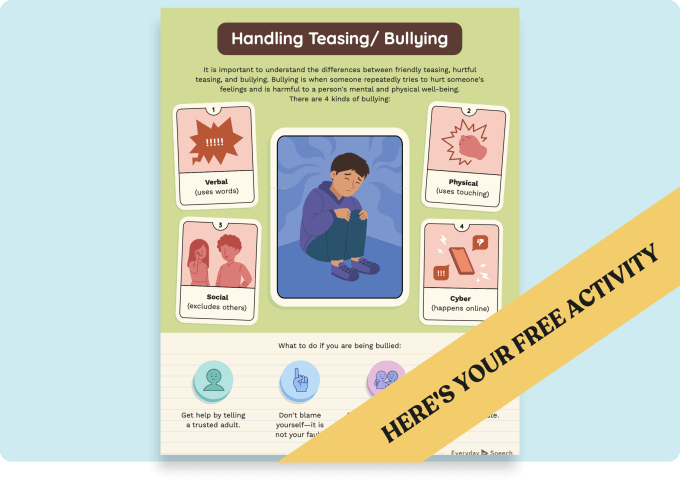Effective IEP Goals for Enhancing Active Listening Skills
Get free social skills materials
No-prep lessons on self-regulation, emotional recognition, conversation skills, and more.
Sign up hereDownload 50+ Example IEP Goals
Customizable library of strengths-based goals
Special education plays a crucial role in nurturing essential life skills in students. One such skill is active listening, which significantly impacts students’ learning, social interactions, and overall wellbeing. In this blog post, we will explore effective Individualized Education Program (IEP) goals for enhancing active listening skills in middle school students.
Why is Active Listening Important?
Active listening is a communication skill that involves using body language and mental focus to show attentiveness and understanding in a conversation. It helps students comprehend and respond to their peers and teachers more effectively, fostering better social interactions and creating a positive learning environment.
The Role of Specialists
Various specialists can support the development of active listening skills in students:
- Speech-Language Pathologists: Assist students in understanding and using verbal and non-verbal communication cues.
- Social Workers: Help students develop their social skills, including active listening, to foster positive relationships.
- Psychologists: Work with students to improve their cognitive and emotional abilities, which can enhance active listening skills.
- School Counselors: Support students in overcoming any barriers to effective communication and active listening.
IEP Goals for Active Listening
Here are some SMART IEP goals to improve active listening skills in middle school students:
Goal 1: The student will demonstrate improved eye contact or visual referencing during conversations with peers and teachers in 8 out of 10 opportunities.
Strategy: Teach students the importance of eye contact and visual referencing in active listening.
Activity: Practice eye contact or visual referencing in structured role-play scenarios.
Goal 2: The student will face their body towards the speaker and maintain an attentive posture in 9 out of 10 conversational opportunities.
Strategy: Discuss the impact of body orientation on active listening and communication.
Activity: Use video recordings to analyze and improve body orientation during conversations.
Goal 3: The student will nod or use appropriate verbal cues to indicate understanding in 90% of conversational opportunities.
Strategy: Teach students various verbal and non-verbal cues to signal attentiveness.
Activity: Engage in group discussions where students practice using appropriate cues to demonstrate active listening.
Implementing and Measuring Progress
Implement these IEP goals by incorporating them into students’ daily routines and classroom activities. Regularly monitor progress through observations, assessments, and feedback from teachers, peers, and specialists. Adjust strategies and goals as needed to ensure continued improvement.
Conclusion
Effective IEP goals for active listening can significantly impact middle school students’ learning, social interactions, and overall wellbeing. By working with specialists and implementing targeted strategies, educators can foster the development of this essential skill. To explore more resources, visit the Everyday Speech Sample Materials page.


